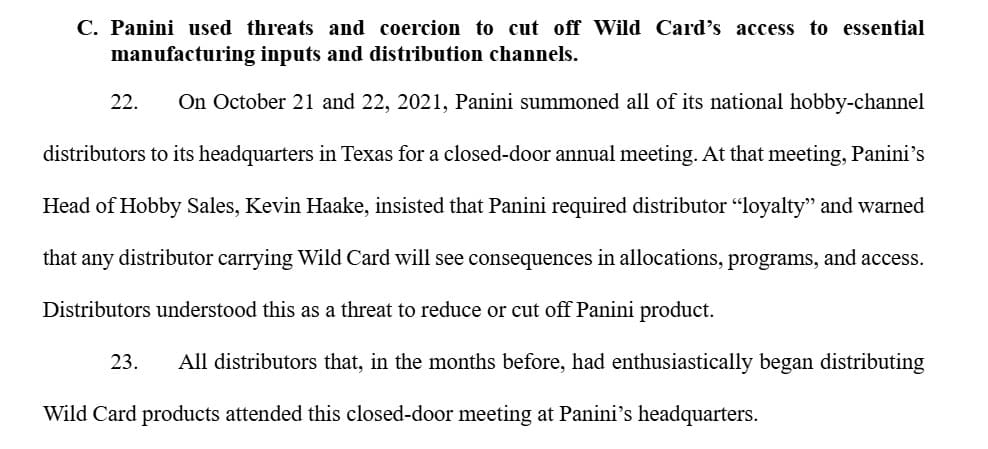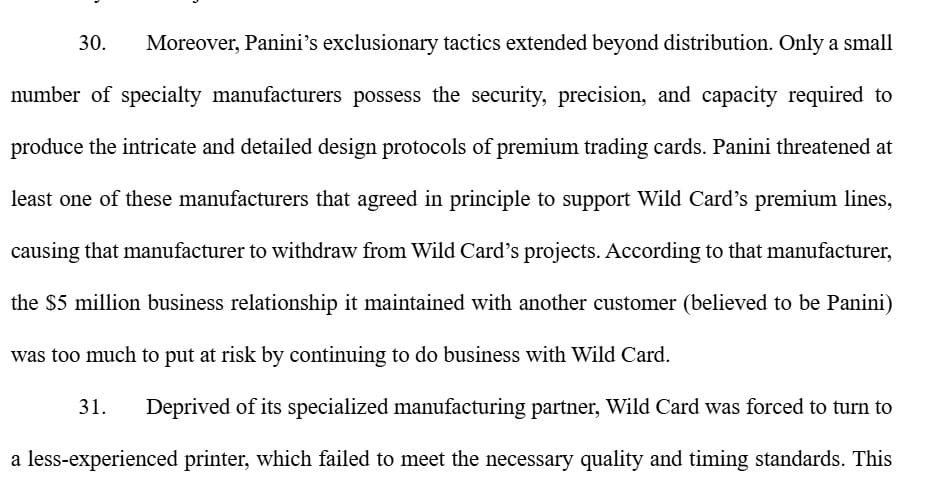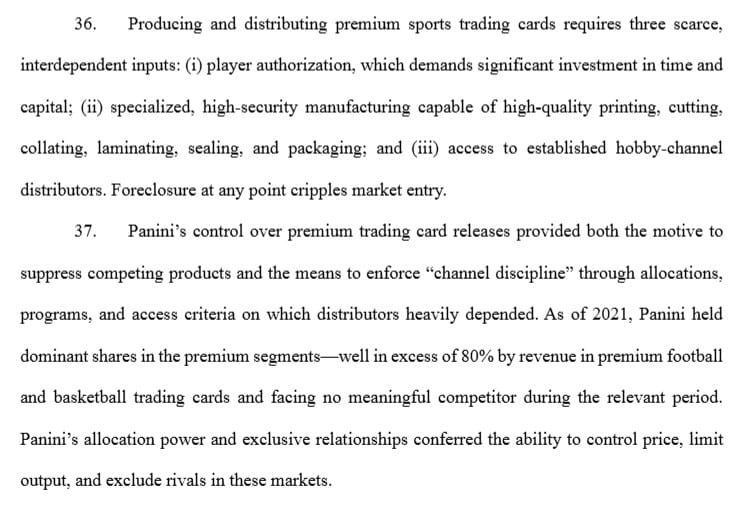Tennessee-based card maker Wild Card Inc. filed a lawsuit last week in the United States District Court for the Eastern District of Texas, accusing rival card company Panini America of “leveraging its market power to coerce essential downstream distributors.” The briefing describes claims that federal commerce laws were violated — specifically, the Sherman Antitrust Act and the Clayton Act.
Wild Card got its start with football “premium cards,” but because of a lack of an NFL license, the company focused its efforts in 2021 on products built around top NFL draft prospects, including Trevor Lawrence. Wild Card argues that exclusivity deals with professional sports leagues gave “Panini control over virtually all league-licensed basketball and football trading cards in the United States. Panini’s market share and allocation control in the premium segment were dominant.”

The legal complaint alleged that Panini America pushed distributors to stop orders and at least one specialty manufacturer to stop working with Wild Card, which slowed the brand’s 2021 relaunch just as it was becoming more popular with collectors.

There are two main complaints Wild Card has alleged.
- Panini threatened to exclude distributors from exclusive programs and to reduce allocations if they continued to carry Wild Card inventory.
“On October 21 and 22, 2021, Panini summoned all of its national hobby channel distributors to its headquarters in Texas for a closed-door annual meeting. At that meeting, Panini’s Head of Hobby Sales, Kevin Haake, insisted that Panini required distributor “loyalty” and warned that any distributor carrying Wild Card will see consequences in allocations, programs, and access. Distributors understood this as a threat to reduce or cut off Panini product.”

- Panini used its weight to influence which manufacturers would work the Wild Card.
“Panini threatened at least one of these manufacturers that agreed in principle to support Wild Card’s premium lines, causing that manufacturer to withdraw from Wild Card’s projects. According to that manufacturer, the $5 million business relationship it maintained with another customer (believed to be Panini)was too much to put at risk by continuing to do business with Wild Card.”

The legal complaint argues that success as a card manufacturer comes in three ways and that Panini’s actions in 2021 ultimately stopped Wild Card’s momentum.
“Producing and distributing premium sports trading cards requires three scarce, interdependent inputs: (i) player authorization, which demands significant investment in time and capital; (ii) specialized, high‑security manufacturing capable of high-quality printing, cutting, collating, laminating, sealing, and packaging; and (iii) access to established hobby‑channel distributors. Foreclosure at any point cripples market entry.”

Wild Card’s legal team alleges that Panini America has hindered its ability to distribute and manufacture cards. Not only are the company’s damages evident, but Wild Card’s legal strategy also argues that collectors are harmed by fewer available products, higher prices due to a lack of competition, and reduced innovation in card design.
Trending Products











